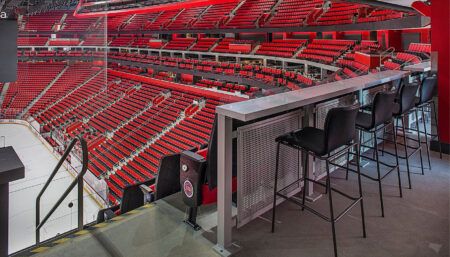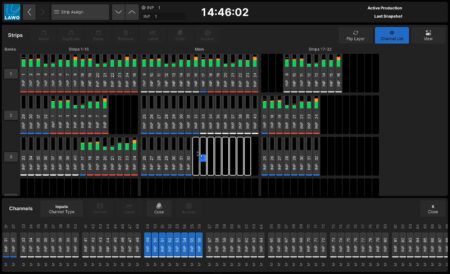A consortium of UK companies has developed an end-to-end technological solution intended to enable stadia, music venues and theatres to operate at full capacity without the need for social distancing. The Fans Are Back plan revolves around the use of 10-minute rapid COVID-19 test kits, along with a secure digital ‘health passport’ that will authorise a person’s identity and COVID-19 test status. There is also a built-in contact-tracing app designed to use anonymised data to detect positive infection contacts within venues.
The app has been in development for five months, and forms part of the digital health passport, which consortium leader VST Enterprises (VSTE), a cyber technology specialist, built inside its existing VHealth Passport infrastructure. The consortium also called upon the talents of sports management and rights holder Redstrike, public health and event safety management company Halo, and occupational health and testing provider Latus Health. The plan has also received the backing of former sports minister Richard Caborn, former England Rugby captain Mike Tindall MBE, and his wife, the Equestrian World Champion and 2012 Silver Medallist, Zara Tindall MBE. In the video above, the Tindalls are shown trying out the solution.
The plan was presented to Prime Minister Boris Johnson and the DCMS Select Committee on 9 September 2020.
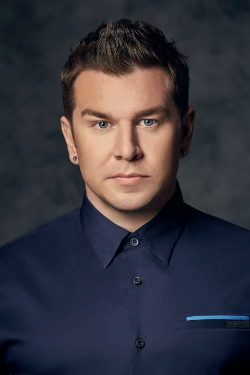
“We know that whilst social distancing pilots have worked, they cannot be sustained in the long term because of the economics of not having fans present,” said Louis-James Davis, CEO of VSTE and inventor of the VHealth Passport and contact-tracing app. “A regime of rapid testing alongside existing PCR-based tests is the only way we can progress forward and was in tune with how the Prime Minister outlined the government’s plan for mass testing. This is vital not just for the British economy, but our entire way of life. Concert venues, sports stadiums and theatres cannot survive much longer without an end-to-end solution that is safe and secure from a testing perspective, and in terms of public health and security and protection of data. Because the VHealth Passport is test-agnostic, it means the technology can work with all test providers, both rapid testing and PCR-based and those with government approval.”
The solution has been designed to keep all personal information and data ultra-secure. It uses VCode technology – also used by the United Nations as part of its SDG programme to give nine billion people unique identifier codes by 2030.
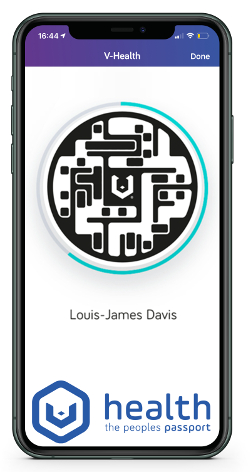 The contact-tracing element of the app allows venues to display a unique geo date- and time-fenced VCode, locked to that venue, which must be scanned as people check in. Under the proposed plan, people would only be allowed to physically check into the venue if they had downloaded the VHealth Passport and taken a COVID-19 test prior to entry.
The contact-tracing element of the app allows venues to display a unique geo date- and time-fenced VCode, locked to that venue, which must be scanned as people check in. Under the proposed plan, people would only be allowed to physically check into the venue if they had downloaded the VHealth Passport and taken a COVID-19 test prior to entry.
Each person would be scanned upon entry for their test status, which would show up as green for negative, red for positive or amber indicating the countdown to another test date. A positive test result would trigger an automatic notification being sent to any and all confirmed contacts who attended that venue that day and scanned into that venue VCode. The system can also notify contacts either side of the scanned date of entry – up to one week prior or post attendance.
“The contact part of the track-and-trace element is completely anonymised, which means a person’s privacy and personal information is not shared and their location is not tracked in real time, other than their check-in to a sports stadium, music venue or theatre,” noted Davis. “This is no different from a music fan using Facebook to check into a pop concert with his or her friends and tagging them. The VHealth Passport is also GDPR-and HIPPA-compliant.”
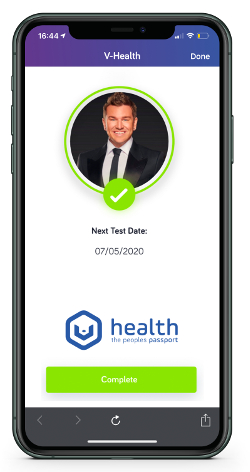 The consortium says the combined VHealth Passport and contact-tracing technology is available and ready to deploy now, with a supply chain in excess of 50 million rapid COVID-19 test kits. The rapid test and VHealth Passport is priced at £15 (US$19.20/€16.21). The app currently integrates 200 testing centres – a number expected to rise to more than 1,000 in the next two weeks.
The consortium says the combined VHealth Passport and contact-tracing technology is available and ready to deploy now, with a supply chain in excess of 50 million rapid COVID-19 test kits. The rapid test and VHealth Passport is priced at £15 (US$19.20/€16.21). The app currently integrates 200 testing centres – a number expected to rise to more than 1,000 in the next two weeks.
“The government’s NHS contact-tracing app had a number of issues – from privacy and Bluetooth security through to false flag alerts and a general apathy by the public to engage,” said Davis. “Simply there was no incentive for the public to engage and adopt the system. The reason why the VHealth Passport will have greater engagement with the public is because of the technology we have created, the fact that all contacts are anonymised, which allays the concerns of privacy, and that venues are incentivising audiences with a simple trade-off. We engage with audiences to adopt testing as a routine with the passport and incentivise their attendance. If a music or sports fan or theatregoer wants to attend an event, then they will only be allowed into that venue having taken a COVID-19 test prior to their arrival and having their negative test result uploaded to a valid VHealth Passport by a qualified healthcare professional and scanned upon entry.”
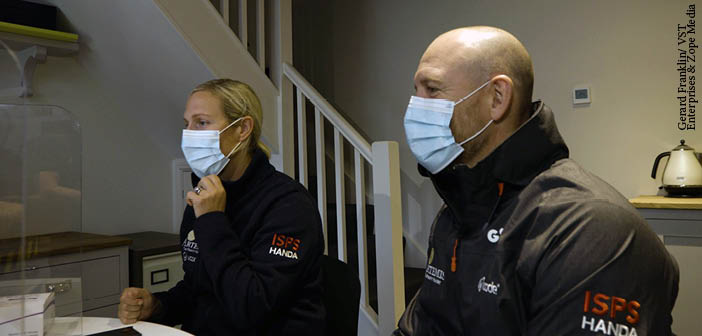
Images: Gerard Franklin/VST Enterprises & Zope Media



